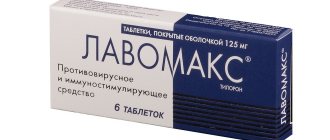Constipation is difficult, irregular, or insufficient bowel movements. Disorders develop as a result of abuse of medical and homeopathic laxative drugs, pregnancy, low physical activity, poor diet, diseases in the anus and intestines. Vaseline oil for constipation is a popular remedy for relief and recovery. Helps adults and children resume normal bowel movements.
General information about the product
Liquid paraffin is a petroleum product obtained after the distillation of kerosene. There are no harmful components in this oily liquid, it is odorless, and mixes well with other fats (but not with castor oil).
This product is in demand in many areas (food industry, construction, applied arts). In medicine it is used in various ways in the following situations:
- Externally - as an anti-inflammatory, softening and healing agent in ointments and in the form of compresses.
- Rectally (through the rectum) - to facilitate the process of defecation and healing of minor damage to the mucous membrane of the anal canal (in the form of microenemas or suppositories).
- Orally (by mouth) – as a laxative for constipation in adults and children.
Vaseline oil is used externally for such cosmetic and medicinal purposes as:
- skin care - eliminating dryness and flaking, preserving moisture, treating minor damage to the epidermis, preventing frostbite in winter;
- restoration of hair and nail structure;
- improvement of eyebrow and eyelash growth;
- therapy for joint problems;
- treatment of lymphadenitis (inflammation of the lymph nodes).
Vaseline oil can be taken orally by both adults and children, since it is not absorbed in the lumen of the gastrointestinal tract (gastrointestinal tract) and does not enter the general bloodstream. But it helps with constipation:
- protect the intestinal mucosa from hard caked feces;
- soften feces;
- gently stimulate intestinal motility;
- prevent the appearance of anal fissures and hemorrhoids;
- eliminate stagnation of feces in the large intestine.
The release form of medical liquid paraffin is dark glass bottles with a capacity of 25, 30, 40 ml (for cosmetic purposes) and 50, 100 ml (for oral administration for constipation). This drug is not available in capsules. It is sold freely in pharmacies at a price of 38 to 80 rubles per 50 ml (depending on the manufacturer).
Preventing constipation
Constipation is a disorder of intestinal function. They bring not only unpleasant sensations, but can also cause serious pathologies. The most common consequence is hemorrhoids, or rather the formation of hemorrhoids, followed by their inflammation and bleeding. Therefore, it is necessary to treat pathology without leaving everything to chance.
Vaseline oil successfully combats this problem, is completely safe and inexpensive.
It is best to prevent stool from stagnating in the intestines by taking simple preventive measures every day:
- drink enough liquid, preferably plain clean water;
- engage in light sports and fitness;
- When working sedentarily, allocate time for walking and cycling;
- eat foods rich in fiber - vegetables, bran bread, buckwheat, oatmeal, greens, sweet fruits;
- introduce fermented milk foods into the diet, preferably natural, not store-bought;
- give up processed foods and fast food;
- get rid of bad habits (smoking, alcohol);
- promptly treat inflammation of the gastrointestinal tract;
- do not abuse laxatives, especially chemicals;
- Avoid stressful situations, nervous strain, and heavy physical activity.
Preventive measures are much easier to implement, especially when they become a habit and are intertwined with the way of life. But treating the disease is much more difficult, and sometimes even more unpleasant.
General rules of use
Vaseline oil can be used orally or rectally to relieve constipation. The instructions for use do not provide detailed information on how to do this correctly. To obtain optimal results, you must adhere to certain rules. General recommendations on how to take Vaseline oil for constipation:
- You should not use this remedy for constant and/or long-term stool retention, as this may indicate the presence of a serious pathology. In such cases, you should consult a doctor and undergo an examination.
- Before drinking Vaseline oil, you should make sure there are no contraindications. To do this, you need to read the instructions or consult your doctor.
- When determining the time of administration, be guided by how long it takes for the oil to act. Usually, after oral administration, it takes about 4-5 hours for the effect to occur; with rectal administration, an average of 1-1.5 hours.
- The dosage of the product must strictly comply with the instructions, and it also depends on age. Exceeding the dose threatens the onset of the opposite effect, the development of atonic constipation.
- The absence of a positive result within 2-3 days is a reason to visit a specialist.
- An adult who simply wants to lose weight should not use the oil to avoid unpleasant health consequences.
Vaseline oil for constipation can be used as a symptomatic remedy, as an emergency aid for difficulty in defecation. It is not suitable for continuous use, especially for the treatment of intestinal diseases accompanied by serious disturbances in the digestion of food.
Contraindications
- Constipation should not be treated with liquid paraffin during pregnancy; the use of this product may provoke uterine contractions.
- Intestinal obstruction is also a contraindication.
- For diseases such as Crohn's disease, ulcerative colitis, inflammation in the abdominal cavity of any nature
- Fever of any severity
- Allergy
- Individual intolerance to the drug
Find out on our website what other quick and effective remedies for constipation are available.
Rectal administration
How to take Vaseline oil for constipation in an enema, for people ignorant of this procedure, it is better to consult a specialist. Two methods are used:
- Microclyster. It is carried out using only oil. The method is used to facilitate the passage of feces in patients after surgery who cannot push, in women after childbirth, as well as to heal existing damage to the mucous membrane (cracks, erosions). Sea buckthorn oil may also be suitable for these purposes. The procedure is done with liquid paraffin heated to body temperature, which is injected into the rectum in an amount of 100 ml using a rubber syringe, after which it is advisable to lie on your left side for half an hour. Stool usually comes within an hour or two.
- Regular enema with Vaseline oil. Add 2 or 3 tablespoons of oil to water (1 liter). The solution is shaken, mixed well and injected into the rectum slowly (about 12-15 minutes). After completing the procedure, it is advisable to lie down for a while and then empty your bowels. Liquid paraffin can be replaced with another product, for example, sunflower oil.
You should not get carried away with enemas; if used frequently, this procedure can lead to disruption of the normal microbial flora of the intestines and contribute to the development of dysbiosis.
Action
Since liquid paraffin is not absorbed, absorbed or processed by our body in any way, when consumed orally it will come out unchanged, and at the same time it will help leave the intestines of stagnant feces. Vaseline oil creates a slippery film between the mucous membrane and the resulting stagnation, and at the same time softens hard, compacted feces and improves peristalsis. Thus, within six to ten hours after a single use, the patient will have stool.
It is important to remember during this treatment that liquid paraffin is only suitable for getting rid of constipation of an acute nature (that is, it is best to treat one-time cases with it). In case of chronic constipation, it is better to abstain from this remedy, since its long-term use can be addictive, and this, in turn, will lead to the fact that the person will not be able to cope with bowel movements on his own; the body will constantly require stimulant drugs.
Precautionary measures
Before taking petroleum jelly for constipation, it is advisable to conduct an individual sensitivity test. To do this, apply a few drops of the product to the inner surface of the forearm and observe for half an hour. The absence of any skin changes indicates good tolerability. If the skin turns red or a rash appears, then you need to inform your doctor about this and think about how to replace the Vaseline oil (for example, flaxseed, pumpkin, castor, sea buckthorn or laxatives as prescribed by the doctor).
Impact on the intestines
For constipation, Vaseline oil is taken orally. Once in the digestive tract, it remains chemically stable and does not penetrate the intestinal walls. Gradually, the drug is evenly distributed throughout the mucous membrane, forming a thin film - a barrier that does not allow substances from food to be fully absorbed into the blood.
The laxative effect is achieved due to the three actions of Vaseline oil:
- A film is created on the intestinal walls, which allows feces to slide without stopping on the relief protrusions and natural folds of the tract.
- Thanks to the action of liquid paraffin, stool softens, which prevents stagnation in certain areas.
- The drug stimulates intestinal motility, affecting the muscles, so that the contents are evacuated faster.
Adverse reactions and opinions
Patient reviews of the drug in question are mostly positive. Few people mention the development of side effects. They mainly appeared in those who used the product for a long time, uncontrollably, acting against established rules.
The following complaints are possible:
- discomfort, bloating or cramping in the abdomen;
- flatulence, flatulence (loud passing of gases);
- difficulty or absence of normal independent bowel movements due to intestinal atony;
- nausea;
- increased irritability;
- the appearance of signs of hypovitaminosis of fat-soluble vitamins A, E, K (dry skin, brittle hair, stuck corners of the mouth, stomatitis, blurred vision, bleeding gums and others);
- tenesmus (false urge to defecate);
- frequent loose stools;
- irritation of the skin around the anus;
- decreased immunity due to the destruction of beneficial intestinal microflora (tendency to frequent infections).
The development of such adverse reactions requires discontinuation of the drug and treatment with probiotics, enzymes, sorbents and other drugs prescribed by a doctor.
Liquid paraffin has found wide application in medicine due to its properties. It is non-toxic, not absorbed into the blood, so it can be used by nursing mothers, children and the elderly. Despite the harmlessness of the product, you need to know how to use Vaseline oil for constipation correctly. With constant or long-term treatment, undesirable consequences and complications are possible. The course should not exceed more than 5 days at the recommended dosage. Liquid paraffin should not be used to prevent constipation or lose weight.
How to drink Vaseline oil for constipation: dosage for adults and children
Taking the oil in arbitrary doses is strictly prohibited. The treatment regimen is selected according to the patient's age. It is recommended to drink the product 2 hours before or after meals without drinking water.
Standard dosing involves:
- for adults – 1-2 tablespoons once, if necessary, you can increase the frequency to 2 times a day, no more than 3 days in a row;
- for children under 1 year – 0.5-1 teaspoon once, repeated use is prohibited;
- for a child after one year - 2-3 teaspoons per day;
- in old age - no more than 2 teaspoons.










